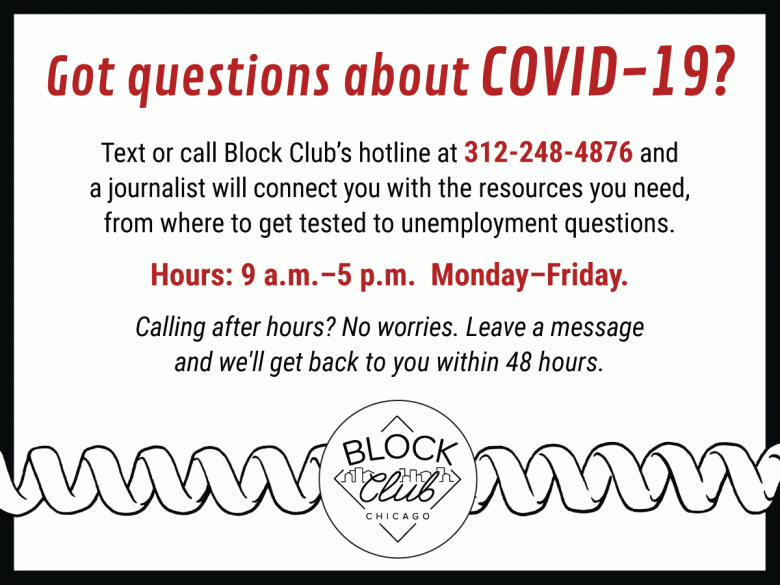CHICAGO — Public health officials are begging Chicagoans with “COVID fatigue” to stop having gatherings and stay home as an out-of-control outbreak threatens to kill 1,800 more city residents by the end of the year.
While announcing a stay at home advisory Thursday — which encourages but does not require Chicagoans to avoid all non-essential activities — Mayor Lori Lightfoot and Dr. Allison Arwady painted a grim picture of the months ahead if the virus spread does not stop.
“I am more worried about COVID right now than I have been at any point since March,” said Arwady, head of the Chicago Department of Public Health. “We’ve seen no sign of slowing here. And we’re in uncharted territory. We are the largest city in the part of the country that is having the most uncontrolled outbreak.”
Arwady shared the latest data, showing skyrocketing rates of virus spread across the city: There were seven deaths and 2,699 confirmed cases reported since Wednesday and up to 145,000 Chicagoans currently have active COVID-19.
An average of 1,920 confirmed cases are being reported per day, a 36 percent increase from the prior week. The city’s seven-day positivity rate has risen to 14.1 percent, up from 10.9 percent the week before — and also up from the 13.6 percent it was Wednesday.
If people continue to ignore public health guidance, the city could be seeing 4,000 new cases every day by Thanksgiving, Arwady said.
RELATED: Cancel Your Thanksgiving Plans Now To Slow Coronavirus Surge, Officials Plea
“We are not set up for a 12-day doubling rate in a city of 2.7 million people to handle COVID. … And if you look at that curve, there’s been no sign yet of it slowing down,” she said. “It takes very little time for these numbers to get to a point where we do again start to overwhelm hospitals, where we do again start to talk about deaths in ways that I hope to never have to talk about.”
Hospitalizations in the state are at an all-time high, with 5,258 people hospitalized with COVID-19, including 956 people in the ICU and 438 on ventilators, according to the Illinois Department of Public Health.
Officials said the shortage of already-overwhelmed hospital staff is their biggest concern since the entire country is grappling with an outbreak. In March and April, nurses and doctors traveled to “hot spot” cities to help — but that will not be possible this fall and winter since the entire country is a hot spot.
“We never saw that number in wave one,” said Dr. Ngozi Ezike, director of the Illinois Department of Public Health. “This is an all-time high, and I am telling you that number is only going to increase.”
Though the city is doing more testing than ever, its positivity rate has about tripled over the past month, Arwady said. If new cases were all related to testing, the test positivity would’ve gone down.
Though a vaccine is on the horizon, Lightfoot and Arwady stressed that it is not here yet, and thousands may die before it is widely available.
“Vaccine is coming; the news on that is good,” Arwady said. “But a vaccine is not the next few months. And the next few months — winter, the flu and COVID fatigue have the potential to truly create a catastrophe that could be avoided here.”
While most people who contract the virus recover, the city is seeing three times as many COVID deaths as it was seeing a month ago. Hospitalizations are also way up with “no sign of slowing down,” she said.
“The way we see COVID work, the surge in cases comes first,” Arwady said. “Then, a few weeks later, the surge in hospitalizations. Then ICU, ventilator — and then death.”
People can slow the virus’s spread by wearing a mask, practicing social distancing, avoiding gatherings of any size and washing their hands. The city is urging everyone to stay at home as much as possible and to not invite anyone into their home.
Block Club Chicago’s coronavirus coverage is free for all readers. Block Club is an independent, 501(c)(3), journalist-run newsroom.
Subscribe to Block Club Chicago. Every dime we make funds reporting from Chicago’s neighborhoods.


